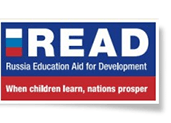Expert interview withMarguerite Clarke, Senior Education Specialist, World Bank
Interviewers: Kumar Vivek, Pradyumna Bhattacharjee
Q. Several schools of thought exist around the purposes of assessments (let’s call them “assessment
principles”). How real, and how stark, in your opinion, are the differences between these philosophies?
A. I don’t think it is stark or divisive, but there are different groups of people who are prioritizing different
things that assessments can do for the education system. The two main groupings are ‘assessment of
learning’ and ‘assessment for learning’. The first grouping comes at the culmination of the teaching and
learning process to say “how much do you know from what you’ve been taught?” or “given what you
were supposed to have learned, what did you actually learn, or what can you do with what you have
learned?” The second grouping is more a part of the teaching and learning process – it is more focused on
the teacher and the student, and on collecting information that will inform what approaches to improving
teaching and learning they will employ next. These are the two main ways of thinking about assessment,
which also affect how you design the assessment, how you implement it, and how you use it.
Q. Should that distinction be there? If there is an assessment that ultimately leads to, say, selection into
tertiary education or international comparisons, should that be completely different from saying “can we
use that data in classroom improvement?” Is it something we should keep different?
A. While it is important to have different kinds of assessment – assessment for learning and assessment
of learning – it does not mean that the information you generate from one cannot be used to inform the
other. There is room for the data from each to be used to inform the other within certain caveats and
parameters. But assessment of and for learning are two important principles to think about, particularly
when it comes to technology- enabled assessment. Whether you’re designing an assessment of or for
learning is going to affect how you structure it and the kinds of technology issues that are then going to
come up.
Read more in READ Trust Fund Newsletter.







